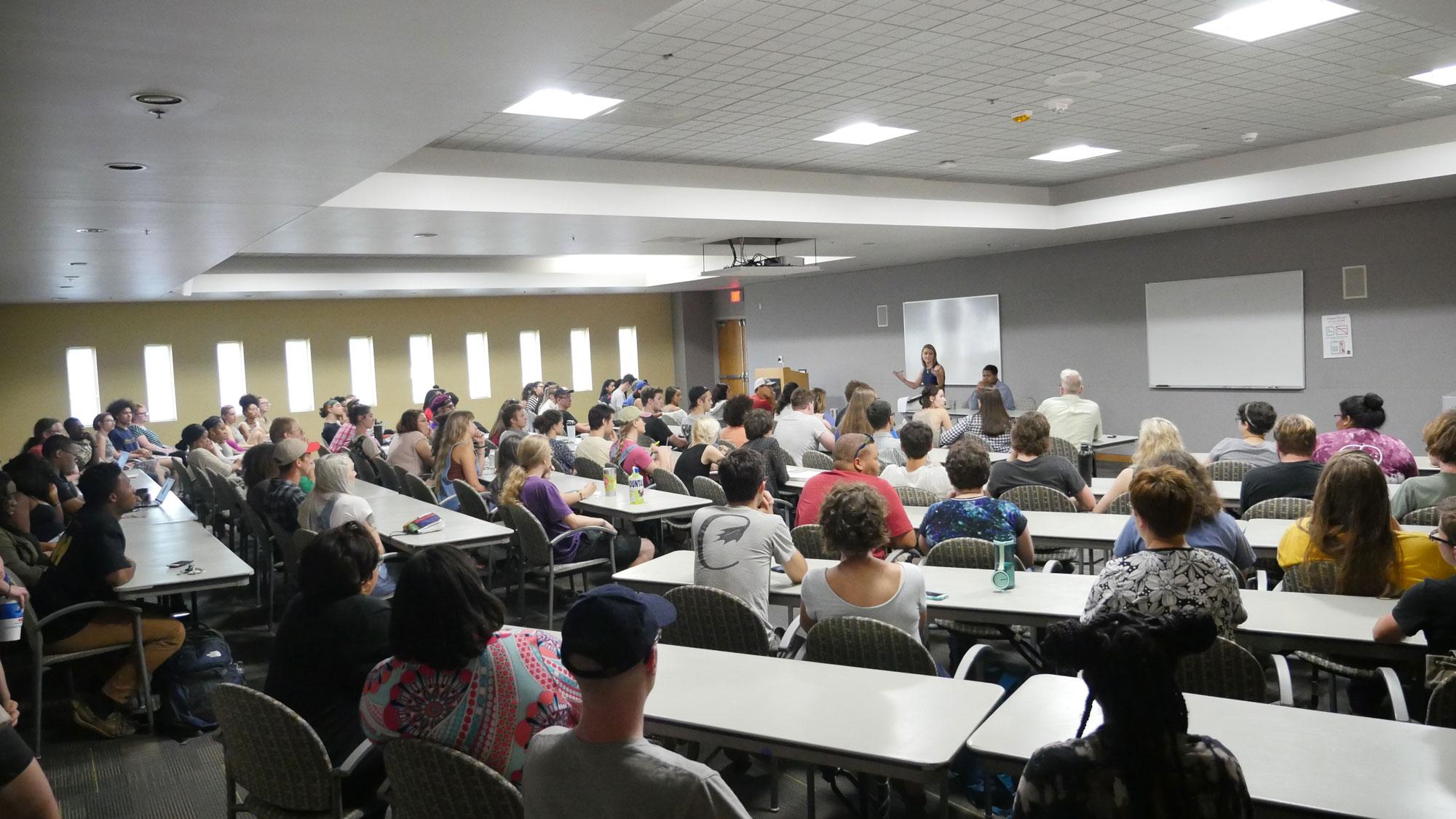A banner for the white nationalist group Identity Evropa was posted on the pedestrian bridge above Rivers Street Monday at approximately 8 p.m., according to a message from Chancellor Sheri Everts.
So far, University Police have found no connections between the banner and recognized student organizations on campus.
Identity Evropa is a white nationalist group founded in the U.S. in March 2016. The Anti-Defamation League identifies the group as a racist white nationalist organization, and the Southern Poverty Law Center classifies Identity Evropa as a hate group.
Members from a group calling themselves “Redneck Revolt” claimed responsibility for removing the banner less than 20 minutes later. Redneck Revolt was described by a self-identified member as an anti-capitalist, anti-fascist and anti-racist organization.
Chancellor Everts said in a statement that university administration suspects that the banner was intended to recruit members to the group.
The Student Government Association responded to the banner by hosting an open forum welcoming any students to share their thoughts and concerns about recent events on campus and across the nation, as well as to provide a platform for presenting ideas about how to better handle and prevent prejudice in the future.
The conversation was facilitated by head members of SGA, student body president Anderson Clayton and Association of Student Governments delegate Jay Edwards.
Clayton, a junior journalism major, said it’s urgent to have a conversation about racism in our country and on campus, and said SGA can be an outlet for marginalized groups to have their voices heard and connect with administration to have their needs met.
“It’s my job to voice the concerns of students to administration, and I really want to help be that voice,” Clayton said. “This is a really big problem that I want your help with and your input on.”
Though people of all identities and backgrounds were welcome to attend and speak, the space focused on the voices of people of color, those who were most directly affected by the banner’s white nationalist message.
Edwards, a sophomore political science major, said creating a space for people of color to share their experiences and make a call for change is vital in ensuring that marginalized voices remain heard and valued in the wake of events such as this one.
“It’s important for us to be having these conversations and dialogues because ignorance is something that is very, very dangerous,” Edwards said.
Clayton said she deliberately decided not to invite administration to the conversation and that it was intended to be an open space to brainstorm and share ideas before having conversations with administration later.
Edwards said it’s important to have white people show up to conversations and events about issues of race and prejudice.
Not only can these people advocate for marginalized communities without fear of violent repercussion, but also that acts of solidarity across backgrounds, races and identities can make a noticeable impact in the wake of prejudice and othering, Edwards said.
“When having these conversations, we need to have the people who need to be there,” Edwards said. “We’re calling to these people because people of color have been doing this already. Queer people of color have been doing this for as long as we’ve existed. It’s tiring.”
Audrey Lipschutz, a junior psychology major, said that students should organize a massive event to bring attention to marginalized communities and how important diversity on campus is.
“We’re used to no one going to our events,” Lipschutz said, “so what we like to do is have events where people will see them and acknowledge them. They might not be going to them, but the fact that they’re acknowledging them is enough on some level.”
Clayton said she hoped that creating this space for uncensored, positive discussion would be the first step in creating a safer and more inclusive community.

